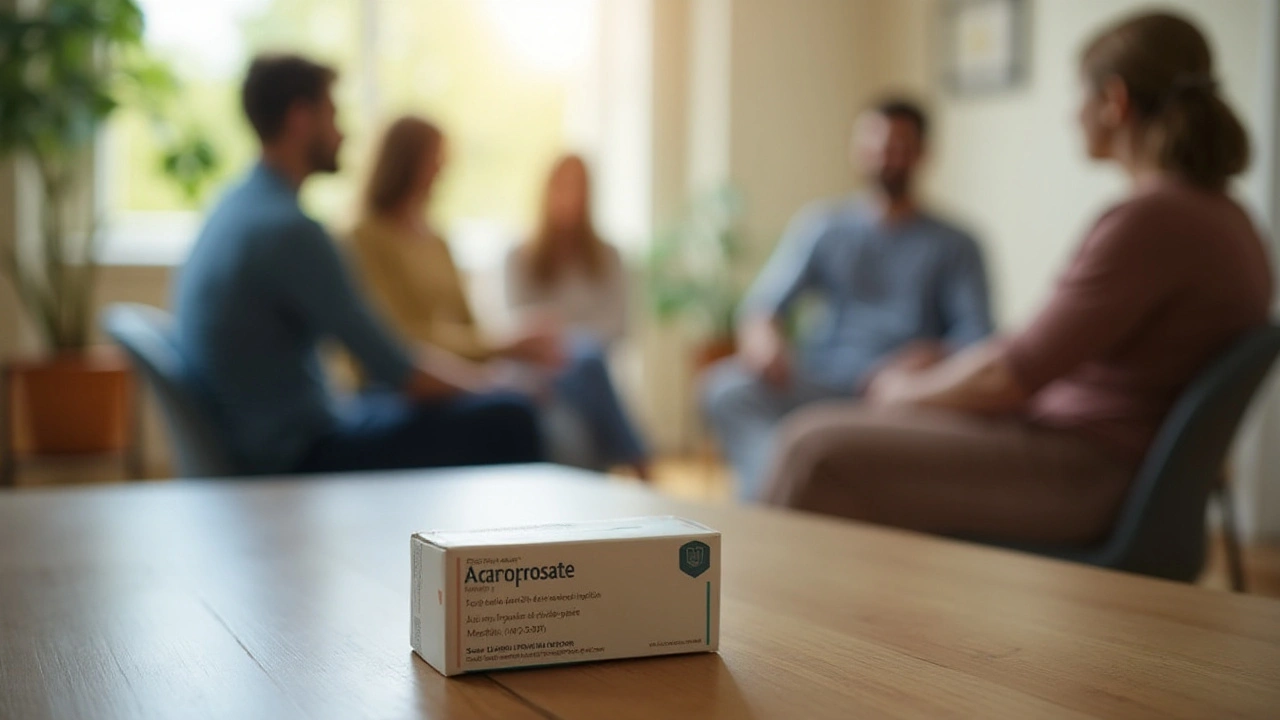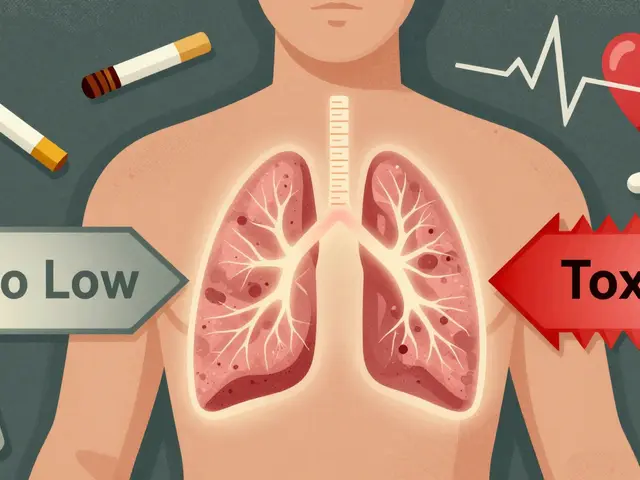Acamprosate (Campral) — a simple guide to reducing alcohol cravings
If you're looking into acamprosate, you're probably trying to stay sober or support someone who is. Acamprosate (brand name Campral) is a medication used to help people maintain abstinence after they stop drinking. It doesn't make you sick if you drink and it won't cure alcohol use disorder on its own, but it can cut cravings and make it easier to stick with recovery plans like counseling or support groups.
How acamprosate works and when to start
Acamprosate acts on brain systems that get out of balance with heavy drinking. Doctors usually start it only after a person is already abstinent — often a few days after detox — because it works best when you're not actively drinking. The usual adult dose is three 333 mg tablets per day (one tablet three times daily), but your doctor will adjust that if needed. If you have kidney problems, your dose may change or your doctor may pick a different treatment.
What to expect: benefits and side effects
Many people notice fewer cravings and less urge to drink within a few weeks. That said, acamprosate helps most when combined with therapy, counseling, or a recovery program. Side effects are usually mild: diarrhea, stomach pain, itching, or headaches. Serious reactions are rare, but mention any new symptoms to your clinician. Unlike some alcohol medications, acamprosate isn't processed by the liver, so it’s often preferred when liver disease is a concern — but kidney function matters, so labs are part of safe use.
Acamprosate doesn't interact with alcohol the way disulfiram does; it won't cause a bad reaction if someone slips. That makes it more forgiving, but also means it relies on reducing the craving rather than creating a deterrent. This is why regular follow-up, therapy, and peer support remain crucial while taking it.
Who should consider acamprosate? It's a common choice for people who have stopped drinking and want help staying sober, especially when liver disease makes other meds risky. It's not suitable for everyone: talk with a doctor if you have severe kidney disease, are pregnant, breastfeeding, or taking many medications. Your clinician will weigh risks and benefits and may suggest alternatives like naltrexone or behavioral approaches depending on your situation.
Practical tips: take doses spaced through the day, keep appointments for kidney checks, and pair the medicine with counseling. If side effects bother you, check with your provider before stopping — small changes in dose or timing can help. Remember, medication is one tool; recovery usually needs a plan, support, and follow-up.
Want to read more? On Apostrophe Pharma Guide you can find plain-language articles about medication safety, drug interactions, and alternatives to common treatments. If you're considering acamprosate, print this page or save notes for your next visit with your healthcare provider so you can ask the right questions and make a clear plan together.

Acamprosate in Alcohol Rehab: Effective Integration into Treatment Programs
Exploring the role of Acamprosate in alcohol rehabilitation, this article delves into how the medication can be integrated into treatment programs to aid in recovery. It examines the benefits and limitations of using Acamprosate and provides practical tips for effective integration. The piece seeks to offer insights to rehab professionals and individuals interested in understanding this approach to treating alcohol dependency.
Read More




